The ugly truth behind the First World War’s Chinese labourers
It’s no surprise that the Allies’ 1918 commemorations failed to mention the 140,000 Chinese labourers shipped to France to dig trenches. British soldiers’ diaries of their near-slave status – and my own father’s First World War memories – show how they were treated, writes Robert Fisk

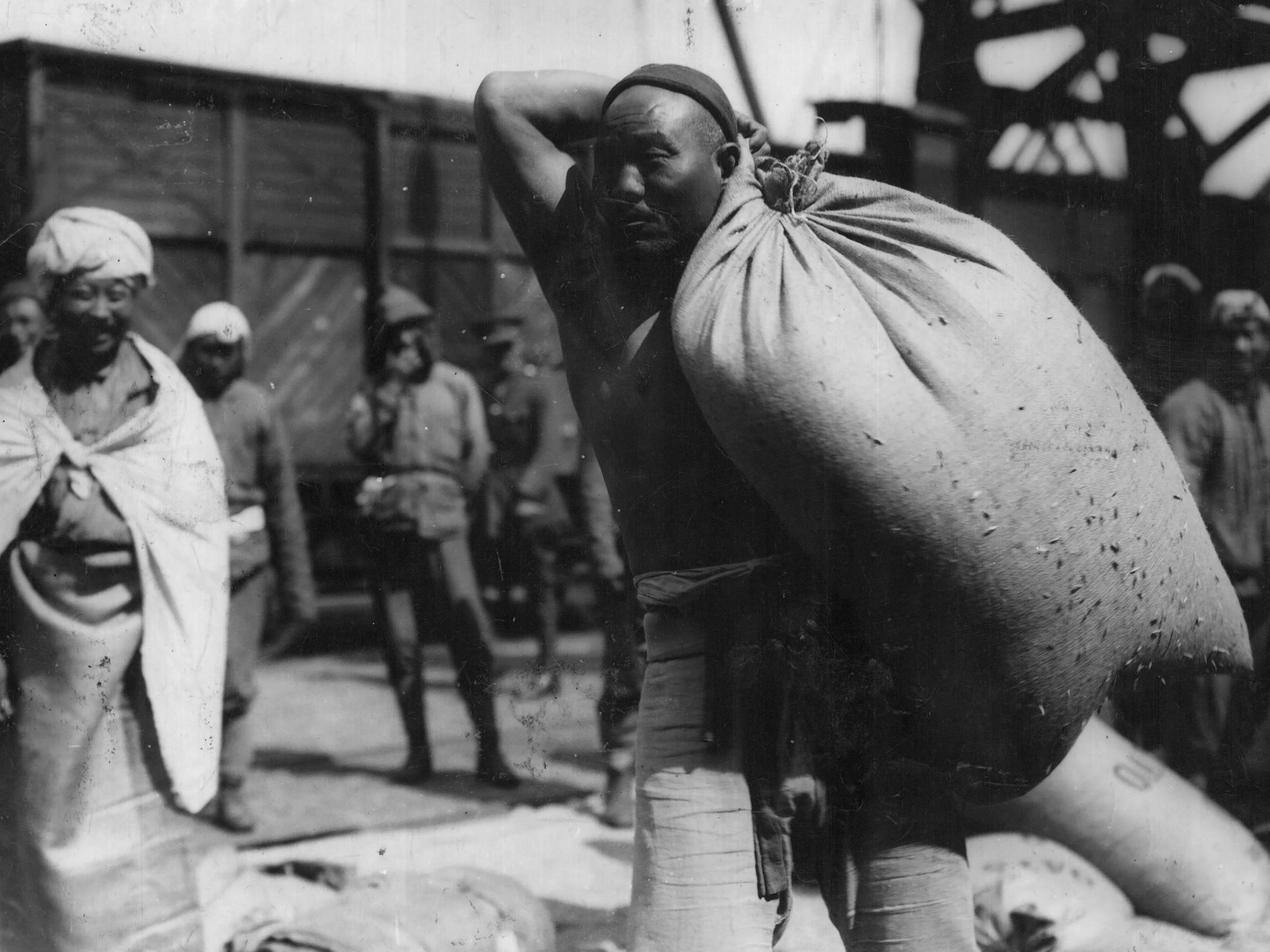
Long after the event, Corporal Harry Rodgers from Birmingham remembered the Chinese rebellion at Boulogne in September of 1917. “It was a wretched, pitiful business,” he recalled. “The poor bastards had been little more than slaves, earning one penny a day compared to our shilling a day… They were nearly all illiterate peasants without the slightest notion of why they were slaving 18 hours a day… Our officers ordered us not to accord them even the dignity of rebels. We were under strict instructions to look upon them as pure rabble.”
It’s not surprising that Britain’s First World War commemorations over the past decade did not much focus on the 140,000 Chinese labourers shipped to France to dig trenches and move food and fuel behind the lines – and sometimes to die under German shellfire. They weren’t exactly slaves. They were under military contract, and most returned home after the war. But it’s easy to see why, right now in the new era of Black Lives Matter, it’s not a subject the British – or the Canadians or French, for that matter – would wish to dwell upon too deeply.
Because Chinese lives did not matter in the First World War. Up to 4,000 of them – perhaps well over 10,000 – never returned home. Two Chinese cemeteries on the Western Front contain the graves of around 2,000, many of them victims of cholera and the Spanish flu epidemic which followed the 1914-18 conflict. At least 10 were executed for alleged murder. There are records of their deaths before British firing squads. In the National Archives at Kew, researching more than 20 years ago through the records of Chinese dead under British military control, I found – inside the paper file – the actual bullet which allegedly killed the victim of a Chinese labourer. The latter had been shot at dawn.
I already knew about the Chinese on the Western Front because – in the very last months of the war – my own Dad, Second Lieutenant Bill Fisk, was an officer in France. And he killed one of those Chinese labourers with his own pistol. He talked about it into his old age – and said it was the only man he knew for certain he had killed in the war.
But let’s go back for a moment to Corporal Harry Rodgers. Seeing the Chinese men – with some Egyptian labourers – assaulting British quarters in Boulogne, he recorded how “if they showed their faces in the streets in groups of over three in number they were to be shot like rabid dogs, and they were, mainly because a feature of the massacre was the clear understanding that if we did not obey orders to kill we too could be shot.” In all, 27 unarmed strikers were shot dead during the rampage. General Haig had ordered “swift, harsh reprisals”. Thirty-nine Chinese were wounded and 25 imprisoned.
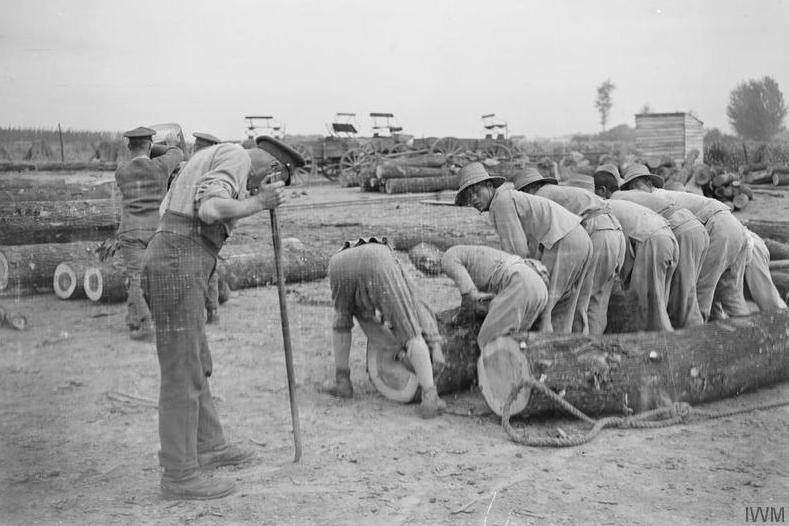
Michael Summerskill, a lawyer and marine insurer, who privately published his own researches on the Chinese Labour Corps almost four decades ago – one of the few historians who cared about these men – concluded that “the colour of their skin seems to have determined the fate of the Boulogne rebels who were considered to be unworthy of the luxury of courts martial.”
But these men were not free. Whether they knew it or not, the Chinese who signed up for the British had committed themselves to three years of military discipline, which included imprisonment and corporal punishment as well as, occasionally, death
There was nothing secret about the Chinese who “enlisted” for the war. Newspaper articles were written about them, even an early newsreel (now lost) filmed onboard their ship to France. Most of them came from Weihaiwei, a British foothold in northern China. They signed up for three years, more than 70 per cent of their pay would go to their family back home, and they would not have to work within 10 miles of the firing line. It was a clause swiftly broken. Not only did they find themselves carrying live munitions to the front, but German advances caught the Chinese behind the lines. Some even grabbed rifles and fought alongside British soldiers. According to the diary of Daryl Klein, a British officer, the Chinese labourer, upon signing his contract, had his hair shaved, his pigtails cut off and was put aboard ships for Europe.
Journalist and historian James Hamilton-Paterson first wrote about Klein’s diary almost half a century ago, and found the following distressing reference to army drill for the Chinese: “There is a rivalry among the officers in regard to the number of canes broken on the backs, legs and shins, not to speak of the heads of defaulters.” In the camps in China were boys of 14 and farmers of 60. In France, the Chinese repeatedly complained about their pay and conditions. A man’s pay was stopped if he was in hospital; so they started to organise secret societies and towards the end of the war, there were a series of strikes and thefts from military trains by the Chinese.
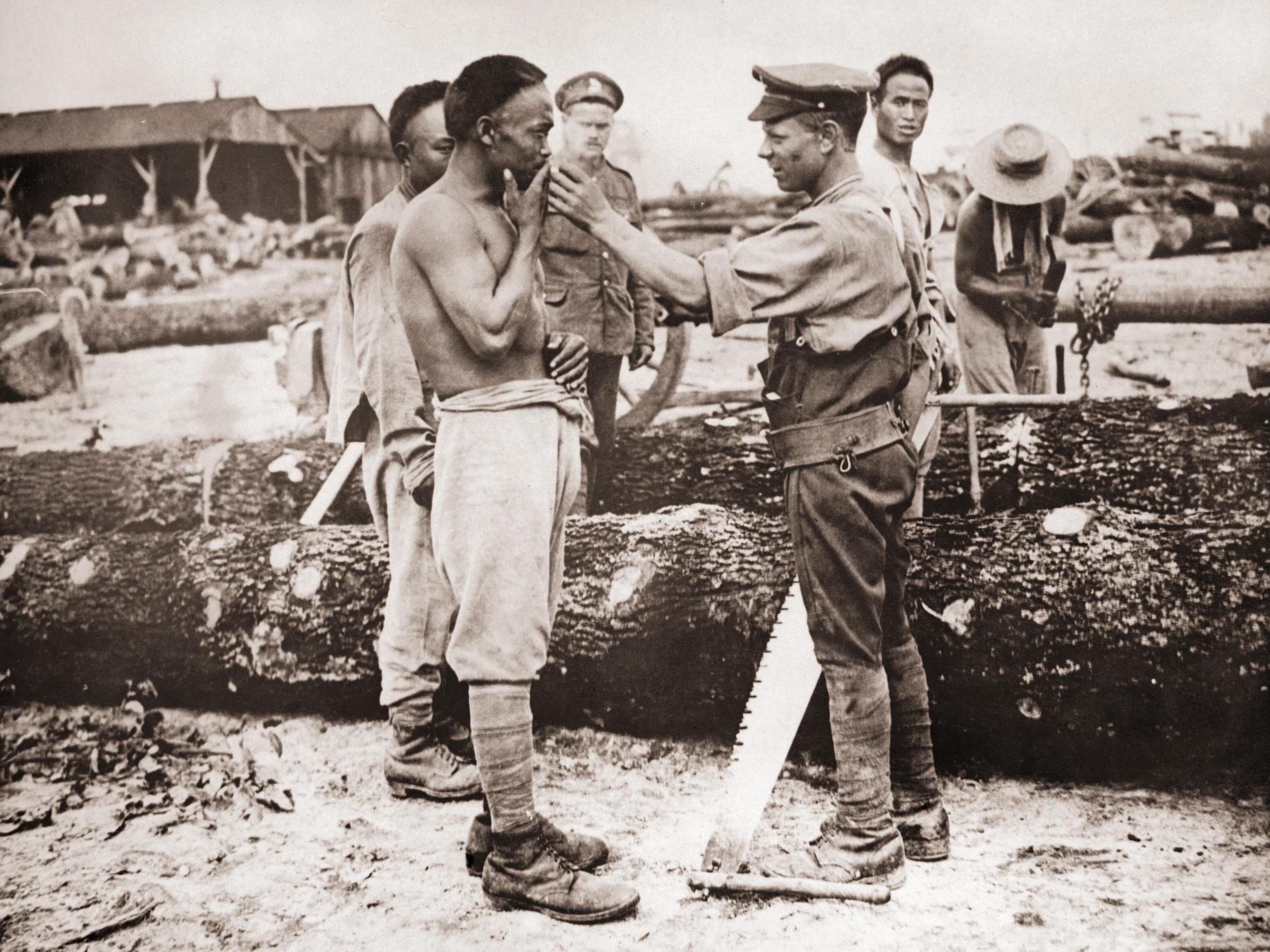
Even the voyage from China to the Western Front was often inhuman and very occasionally tragic. At least 85,000 of the Chinese Labour Corps were secretly transported for six days across Canada en route to Europe in sealed trains. Labourers hired by the French were put aboard the passenger vessel Athos, but it was torpedoed in the Mediterranean on its way to France and 543 Chinese were drowned. Just as the sinking of the Lusitania with American passengers aboard propelled the United States into the war, so China severed relations with Germany after the sinking of the Athos. The Chinese government of the time believed it might receive rewards at the post-war peace negotiations if it allowed its labour contingents to sail for France, although it was virtually ignored at Versailles in 1919. A promise to return the Shandong peninsula from Japanese to Chinese possession was forgotten. The Chinese were the only power to refuse to sign the Treaty of Versaille.
In France, the Chinese also built roads, repaired tanks and – once the war was over – were employed to dig up unexploded munitions and set to work on the grim task of exhuming corpses for burial in the Great War cemeteries that now litter northern France. Their presence was to have been recorded on a vast commemorative painting of France’s wartime allies – but the images of Chinese workers were painted out to make way for America’s soldiers after the US entered the war. Some Chinese sources believe the total death toll among their labourers was 20,000.
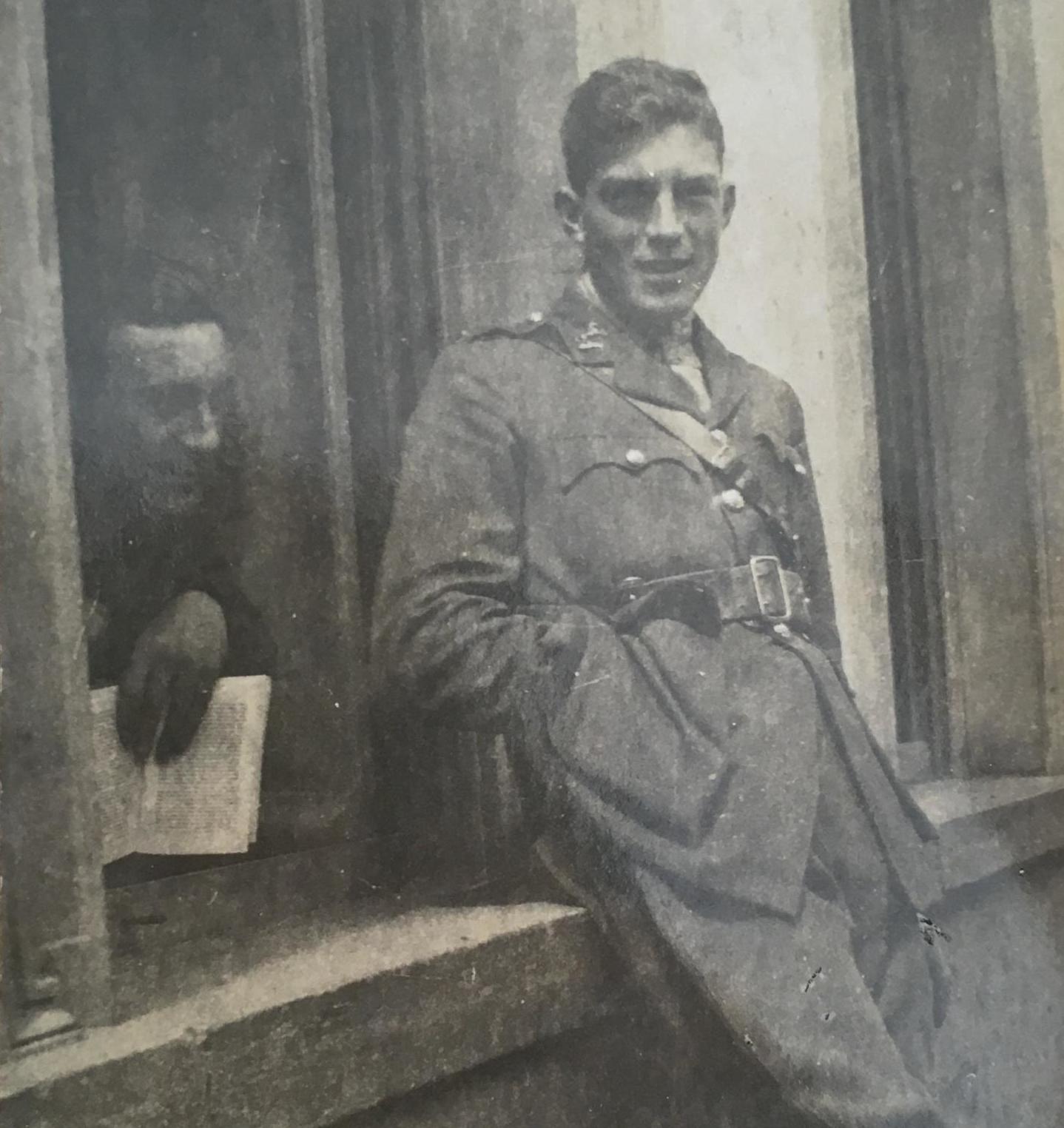
And so we come to Bill Fisk. He was a junior officer in the King’s Liverpool Regiment and after fighting in the 1918 Third Battle of the Somme and the liberation of Cambrai, he stayed on in France after the armistice – the war did not officially end, of course, until the Versailles Treaty in 1919 – and thus came to kill a member of the Chinese Labour Corps. I should say at once that Bill destroyed his own military career – most morally and bravely – by refusing to command a firing party to execute an Australian soldier who had murdered a British military policeman in Paris. The Australian, a member of a British regiment and thus subject to UK military law, was later put to death at Le Havre. But Bill had refused the order to kill him – in retrospect, I think it was the finest act of his life – but his hopes of serving as an officer in India were shattered.
But when I was a very small boy, Bill would take me on his knee and place one of my fingers on a very small dent on his forehead. Running from it was a thin, old scar. “That’s where the ch*** got me with the knife,” he’d say. At school, I used to tell my friends that “my dad shot a Chinese man”, though I could never explain why. But many years later, he had told my mother of his life in the war and she had, at my secret request, written down his words.
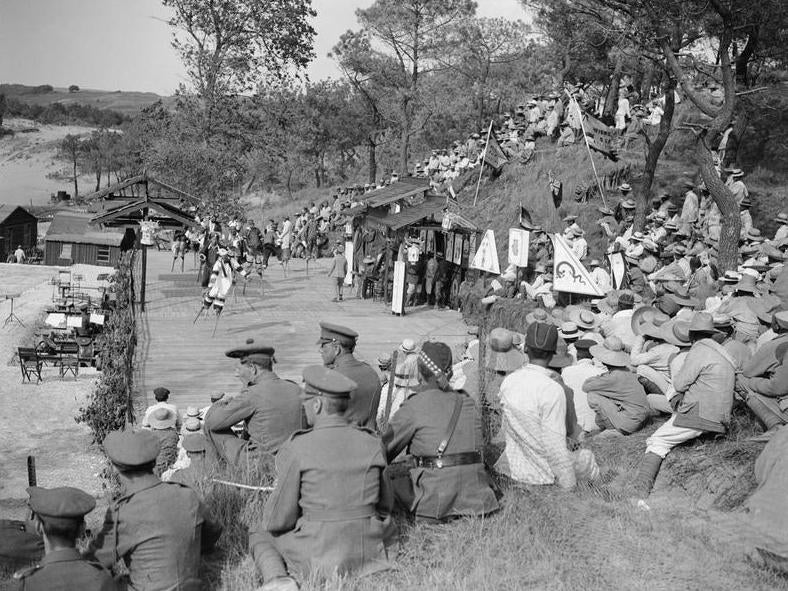
This is the relevant extract: “When I first got to France there were thousands of Chinese there. They were brought there to repair the roads from shell holes, and they had been robbing a French provision train … I was a junior subaltern at the time.” Bill arrived, as a 4th Battalion Kings Liverpool Regiment officer, at the Chinese camp near Arras to find a group of huts surrounded by barbed wire. I have recalled all this before, but today his words take on, of course, a darker meaning. When he got to the camp with a platoon of 30 men, the Chinese would allow Bill to enter their hut – but without his men. “I went and sat at a table and there were ch**** all round, and this fellow aimed a knife at my forehead between my eyes,” he would recall for my mother.
“I was trying to read something, leaning forward, when I felt this fellow opposite me moving… he would have got me in the back of the neck if I hadn’t moved. Well, I shot him dead and made for the door, and ran like hell – they were streaming after me and the sarge that was in charge of these 30 men opened fire – I don’t know how many of the ch**** they killed. It’s a good job they did.”
I tried to find the official version of my father’s brush with death – and the Chinese man’s very definite appointment with death – but found that Bill’s military files had been “weeded” in 1936 and 1955. To delete a refusal to command a firing party because he would not kill a fellow soldier? Or a small massacre of Chinese workers? Bill remembered the incident with the Chinese as occurring in 1918, when the war was not yet ended, but I did find in the 4th Battalion records the following paragraph: “DUISONS 11 June 1919. 2 companies quelled trouble [sic] at Chinese Compound Arras … 1 officer and platoon remained as guard.” I suspected – and still do – that this was the official censored version of the shooting at the camp and that the “officer” is my father. Only the year is 1919. After so many decades, Bill had got the date wrong.
Chinese graves in the French cemeteries often carried names. The 10 men executed bore only numbers on burial plots – although the man Bill shot died in different circumstances. We shall never know more about the events of that day. Bill was only 19 years old, his Chinese assailant perhaps younger. But he, too, had a name and most assuredly a family back in what we might now call mainland China. Was his pay stopped that fatal day as well as his life? Did he even receive a gravestone like his dead colleagues of that war and its aftermath?
In 2019, the British did at last hold services of remembrance to the Chinese who served – and died – in the 1914-18 war. The Chinese government participated in some of them. In France, their memory has never been mentioned during the 11 November commemorations, although a small plaque was unveiled near the Gare de Lyon in Paris in 1988 by the socialist candidate for the 12th arrondissement (he was a communications minister at the time). The 12th included a politically important Asian community, good enough reason for Paul Quiles to so suddenly remember the Chinese of the Great War. Two Chinese veterans were found and awarded the Legion d’Honneur.
Then they died. As Figaro journalist Thierry Portes was to note cynically almost 20 years ago, it was near the Gare de Lyon – terminus for the Chinese who arrived from the Marseilles passenger boats – that the very first Chinese restaurants were opened in France. And the French at that time were at least interested in the history of China. There were French academics who spoke Chinese. And if the British relied on Chinese student interpreters, they did at least allow them to celebrate the Chinese New Year during the Great War. Photographs show British troops behind the lines staring in wonderment at huge Chinese dragons.
But these men were not free. Whether they knew it or not, the Chinese who signed up for the British had committed themselves to three years of military discipline, which included imprisonment and corporal punishment as well as, occasionally, death. And once the Chinese entered Allied service, their identity was maintained in a unique way. Their fingerprints had been taken when they were contracted. British soldiers, of course, wore identity discs. The Chinese had a steel wristlet fitted to their arm so that their British masters knew who they were.
Join our commenting forum
Join thought-provoking conversations, follow other Independent readers and see their replies
Comments